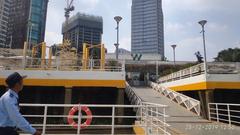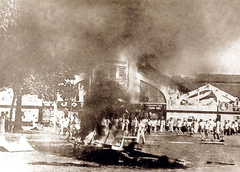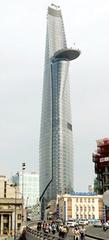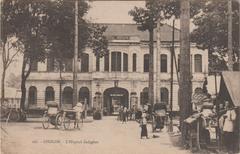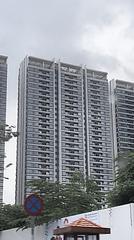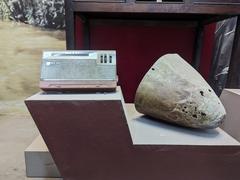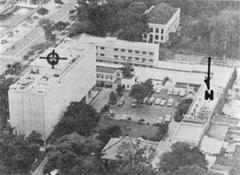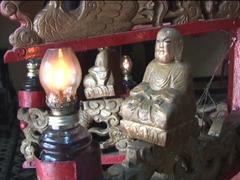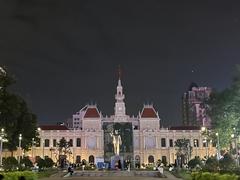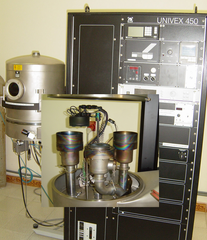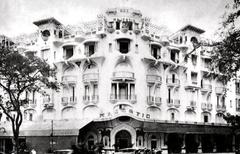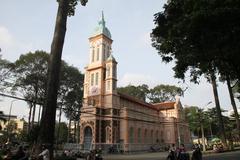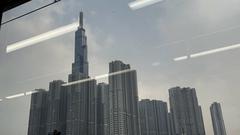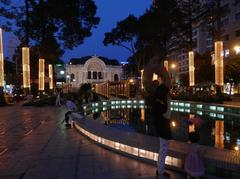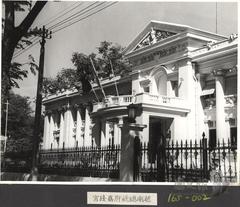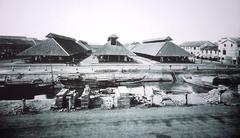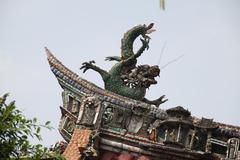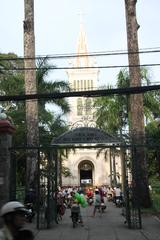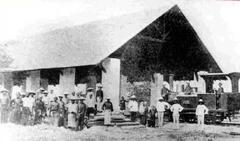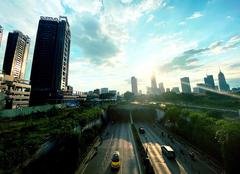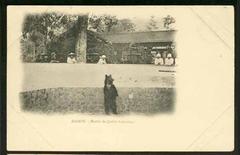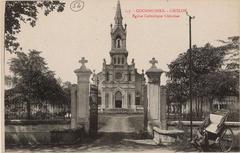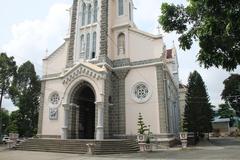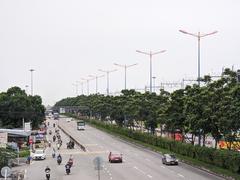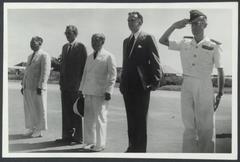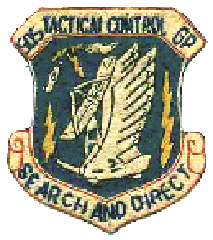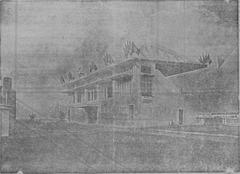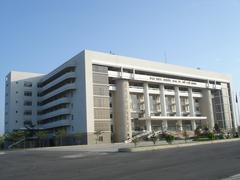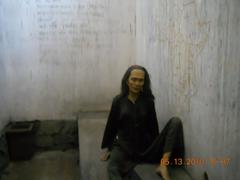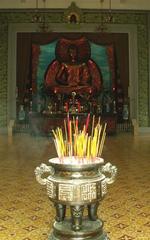Ho Chi Minh City Museum of Fine Arts Visiting Guide: History, Significance, Visitor Tips, and More
Date: 18/07/2024
Introduction
Situated in the bustling heart of Ho Chi Minh City, the Bảo tàng Mỹ thuật Thành phố Hồ Chí Minh, also known as the Ho Chi Minh City Fine Arts Museum, stands as a beacon of Vietnamese cultural and artistic heritage. This museum is a must-visit destination for tourists and art enthusiasts alike, offering an immersive experience that encompasses a rich tapestry of Vietnam’s history, culture, and artistic evolution. Housed in two architecturally significant buildings that reflect the city’s diverse historical influences, this museum provides a comprehensive journey through Vietnamese art, from ancient artifacts to contemporary masterpieces. Established in 1987, the museum not only serves as a repository of artistic treasures but also as a vivid reminder of the cultural confluence that has shaped Vietnam over the centuries (Fine Arts Museum). This guide aims to offer detailed insights into the museum’s history, architectural significance, visitor information, and practical tips to ensure a memorable visit.
Table of Contents
- [Introduction](#introductionintroduction)
- [A History of Elegance - The Buildings of Bảo tàng Mỹ thuật Thành phố Hồ Chí Minh](#a-history-of-elegance---the-buildings-of-bảo-tàng-mỹ-thuật-thành-phố-hồ-chí-minha-history-of-elegance---the-buildings-of-bảo-tàng-mỹ-thuật-thành-phố-hồ-chí-minh)
- [The Majestic Main Building - A Fusion of Styles](#the-majestic-main-building---a-fusion-of-stylesthe-majestic-main-building---a-fusion-of-styles)
- [The Second Building - A Modern Counterpoint](#the-second-building---a-modern-counterpointthe-second-building---a-modern-counterpoint)
- [A Legacy Preserved - The Museum’s Architectural Significance](#a-legacy-preserved---the-museums-architectural-significancea-legacy-preserved---the-museums-architectural-significance)
- [Preservation Efforts](#preservation-effortspreservation-efforts)
- [A Window into the Past](#a-window-into-the-pasta-window-into-the-past)
- [Visitor Information - Making the Most of Your Visit](#visitor-information---making-the-most-of-your-visitvisitor-information---making-the-most-of-your-visit)
- [Visiting Hours and Ticket Prices](#visiting-hours-and-ticket-pricesvisiting-hours-and-ticket-prices)
- [Travel Tips](#travel-tipstravel-tips)
- [Special Events and Guided Tours](#special-events-and-guided-toursspecial-events-and-guided-tours)
- [Collections and Exhibitions](#collections-and-exhibitionscollections-and-exhibitions)
- [Building 1 - Vietnamese Art Through the Ages](#building-1---vietnamese-art-through-the-agesbuilding-1---vietnamese-art-through-the-ages)
- [Ancient Art](#ancient-artancient-art)
- [Cham Sculpture](#cham-sculpturecham-sculpture)
- [Buddhist Art](#buddhist-artbuddhist-art)
- [Traditional Arts and Crafts](#traditional-arts-and-craftstraditional-arts-and-crafts)
- [Modern and Contemporary Art](#modern-and-contemporary-artmodern-and-contemporary-art)
- [Building 2 - The World Through Vietnamese Eyes](#building-2---the-world-through-vietnamese-eyesbuilding-2---the-world-through-vietnamese-eyes)
- [Portraits](#portraitsportraits)
- [Landscapes](#landscapeslandscapes)
- [Still Life](#still-lifestill-life)
- [Genre Scenes](#genre-scenesgenre-scenes)
- [Abstract Art](#abstract-artabstract-art)
- [Temporary Exhibitions](#temporary-exhibitionstemporary-exhibitions)
- [Building 1 - Vietnamese Art Through the Ages](#building-1---vietnamese-art-through-the-agesbuilding-1---vietnamese-art-through-the-ages)
- [Photographic Spots](#photographic-spotsphotographic-spots)
- [Tips for a Memorable Visit](#tips-for-a-memorable-visittips-for-a-memorable-visit)
- [Nearby Attractions](#nearby-attractionsnearby-attractions)
- [FAQ](#faqfaq)
- [Conclusion](#conclusionconclusion)
- [References](#referencesreferences)
A History of Elegance - The Buildings of Bảo tàng Mỹ thuật Thành phố Hồ Chí Minh
The Bảo tàng Mỹ thuật Thành phố Hồ Chí Minh is housed in two magnificent French colonial-era villas that reflect a blend of European and local Vietnamese design sensibilities.
The Majestic Main Building - A Fusion of Styles
The museum’s main building, located at 96A Phó Đức Chính Street, is a vision in white and teal. Constructed in 1929, this architectural gem originally served as the private residence of Hứa Bổn Hòa (1875-1938), a prominent Chinese businessman known by the name Hui Bon Hoa.
-
Architectural Influences: The building showcases a captivating blend of architectural styles. While predominantly French in its design, elements of Chinese and Vietnamese architectural traditions are interwoven throughout. This fusion of styles is a testament to the multicultural influences that shaped Saigon (now Ho Chi Minh City) during the late 19th and early 20th centuries.
-
Notable Features: The building’s facade is a symphony of ornate details. Graceful arched windows, adorned with intricate wrought ironwork, offer glimpses into the artistic treasures within. Delicate moldings, decorative balconies, and a mansard roof with dormer windows add to the building’s visual appeal. Inside, the museum retains its original grandeur with high ceilings, spacious halls, and elegant staircases.
The Second Building - A Modern Counterpoint
Contrasting the romanticism of the main building, the museum’s second building, situated at 97A Phó Đức Chính Street, presents a more modern architectural style. Built in 1934, this building also served as a private residence during the French colonial period.
-
Architectural Significance: While less ornate than its counterpart, the second building holds its own with its clean lines and geometric forms. The design reflects the evolving architectural trends of the early 20th century, moving away from elaborate ornamentation towards a more streamlined aesthetic.
-
Integration with the Main Building: Despite their contrasting styles, the two buildings are seamlessly connected by a modern structure. This architectural bridge serves as a symbolic link between the past and present, highlighting the museum’s commitment to showcasing both traditional and contemporary Vietnamese art.
A Legacy Preserved - The Museum’s Architectural Significance
The Bảo tàng Mỹ thuật Thành phố Hồ Chí Minh stands as a testament to the city’s rich history and architectural heritage. The museum’s buildings, with their unique blend of architectural styles, offer a tangible connection to Vietnam’s colonial past.
Preservation Efforts
The museum’s buildings have undergone meticulous restoration and preservation efforts to maintain their original splendor. These efforts ensure that future generations can continue to admire and appreciate the architectural legacy of these remarkable structures.
A Window into the Past
Beyond their aesthetic appeal, the museum’s buildings provide valuable insights into the lives of the city’s elite during the French colonial period. The architectural details, spatial arrangements, and decorative elements offer glimpses into the social and cultural norms of a bygone era.
Visitor Information - Making the Most of Your Visit
Visiting Hours and Ticket Prices
- Visiting Hours: The Ho Chi Minh City Fine Arts Museum is open daily from 9:00 AM to 5:00 PM.
- Ticket Prices: General admission tickets are priced at 30,000 VND for adults and 15,000 VND for students and children.
Travel Tips
- Location: The museum is conveniently located in District 1, making it easily accessible by taxi or public transportation.
- Nearby Attractions: Combine your visit with a trip to the nearby Ben Thanh Market or the Notre-Dame Cathedral Basilica of Saigon for a full day of exploration.
- Photography Spots: Don’t forget to bring your camera! The museum’s architectural details and beautiful courtyards offer plenty of photo opportunities.
Special Events and Guided Tours
- Guided Tours: Enhance your visit with a guided tour to gain deeper insights into the museum’s collections and architectural history. Tours are available in multiple languages.
- Special Events: Check the museum’s official website for information on special exhibitions, workshops, and cultural events that may coincide with your visit.
Collections and Exhibitions
Building 1 - Vietnamese Art Through the Ages
This building showcases the chronological evolution of Vietnamese art, from ancient times to the present day.
Ancient Art
This section features artifacts from Vietnam’s ancient civilizations, including the Oc Eo culture and the Funan Kingdom. Visitors can admire intricate pottery, bronze sculptures, and religious relics that offer a glimpse into the artistic traditions of Vietnam’s early inhabitants.
Cham Sculpture
A dedicated gallery houses an impressive collection of Cham sculpture, reflecting the artistic achievements of the ancient Champa kingdom that once flourished in central and southern Vietnam. The intricate sandstone carvings, often depicting deities and mythical creatures, are renowned for their dynamic poses and detailed ornamentation.
Buddhist Art
Buddhism has played a significant role in shaping Vietnamese culture, and the museum dedicates a section to Buddhist art. Visitors can explore a collection of statues, wood carvings, and ritual objects that illustrate the evolution of Buddhist iconography and aesthetics in Vietnam.
Traditional Arts and Crafts
This section celebrates the diverse range of traditional Vietnamese arts and crafts. Visitors can admire intricate lacquerware, delicate silk paintings, and colorful Dong Ho folk prints, showcasing the skill and artistry passed down through generations of Vietnamese artisans.
Modern and Contemporary Art
The museum’s collection extends to the modern and contemporary periods, showcasing the works of prominent Vietnamese artists who have shaped the country’s artistic landscape in the 20th and 21st centuries. Visitors can explore a range of styles and movements, from early modernist experiments to contemporary installations and multimedia works.
Building 2 - The World Through Vietnamese Eyes
This building focuses on Vietnamese art through a thematic lens, exploring how artists have engaged with various subjects and inspirations.
Portraits
This section features a collection of portraits that offer insights into Vietnamese society and culture. Visitors can observe the changing styles of portraiture, from traditional depictions of emperors and mandarins to modern interpretations of everyday people.
Landscapes
Vietnam’s diverse landscapes have long been a source of inspiration for artists. This section showcases paintings and sculptures that capture the beauty of the country’s natural environment, from the lush rice paddies of the Mekong Delta to the towering peaks of the Hoang Lien Son mountain range.
Still Life
This section explores the artistic tradition of still life in Vietnamese art. Visitors can admire paintings and sculptures that depict everyday objects, often imbued with symbolic meaning and cultural significance.
Genre Scenes
This section offers glimpses into Vietnamese daily life through the eyes of artists. Paintings and sculptures depict scenes from everyday life, such as market scenes, festivals, and family gatherings, providing insights into the customs and traditions of Vietnamese society.
Abstract Art
The museum also houses a collection of abstract art, showcasing the evolution of this movement in Vietnam. Visitors can explore works by pioneering Vietnamese abstract artists, who experimented with form, color, and composition to create visually striking and thought-provoking pieces.
Temporary Exhibitions
In addition to its permanent collection, the Ho Chi Minh City Museum of Fine Arts regularly hosts temporary exhibitions, featuring both Vietnamese and international artists. These exhibitions offer a dynamic and ever-changing perspective on the art world, providing visitors with opportunities to engage with new ideas and artistic expressions.
Photographic Spots
The museum’s architecture itself is a work of art, providing numerous spots for stunning photographs. Don’t miss capturing the beautiful staircases and the exterior facade.
Tips for a Memorable Visit
- Allocate Sufficient Time: The museum houses a vast collection, and it’s recommended to allocate at least 2-3 hours to fully appreciate the artwork.
- Start Early: Arriving early in the day allows you to avoid large crowds and enjoy a more tranquil experience.
- Dress Respectfully: As with visiting any cultural institution, it’s important to dress respectfully. Avoid wearing revealing clothing or clothing with offensive imagery.
- Stay Hydrated: The weather in Ho Chi Minh City can be hot and humid. Bring a water bottle or purchase refreshments at the museum’s cafe to stay hydrated.
- Engage with the Art: Take your time to observe the artwork, read the descriptions, and reflect on the stories they tell.
- Visit the Museum Shop: The museum shop offers a selection of art books, souvenirs, and prints. It’s a great place to find unique gifts or mementos of your visit.
Nearby Attractions
The Ho Chi Minh City Museum of Fine Arts is located near several other attractions, making it easy to combine your visit with other sightseeing activities:
- Notre Dame Cathedral of Saigon: A stunning example of French colonial architecture, located just a short walk from the museum.
- Saigon Central Post Office: Another iconic landmark designed by Gustave Eiffel, situated across the street from the cathedral.
- Independence Palace (Reunification Palace): A historically significant site that played a pivotal role in the Vietnam War.
- War Remnants Museum: A poignant museum showcasing the realities of the Vietnam War.
- Ben Thanh Market: A bustling market offering a wide array of goods, from souvenirs to street food.
FAQ
1. What are the visiting hours of the Ho Chi Minh City Museum of Fine Arts?
The museum is open daily from 9:00 AM to 5:00 PM.
2. How much are the tickets?
Ticket prices are 30,000 VND for adults and 15,000 VND for students and children.
3. Is the museum accessible for wheelchair users?
Yes, the museum is wheelchair accessible, with ramps and elevators available.
4. Can I take photos inside the museum?
Photography is allowed for personal use, but flash photography and tripods are prohibited.
Conclusion
A visit to the Bảo tàng Mỹ thuật Thành phố Hồ Chí Minh is an immersive experience, where art and architecture intertwine to create a captivating journey through Vietnam’s artistic heritage. As you wander through the museum’s galleries, take a moment to appreciate the architectural beauty that surrounds you. The buildings themselves are works of art, adding another layer of depth and meaning to your museum experience. Whether you are an art enthusiast, history buff, or architecture aficionado, the Ho Chi Minh City Fine Arts Museum offers something for everyone. For more updates and information, follow us on social media or visit our official website.
References
- Discover the Ho Chi Minh City Fine Arts Museum - History, Architecture, and Visitor Guide (2023). Discover the Ho Chi Minh City Fine Arts Museum
- Explore the Ho Chi Minh City Museum of Fine Arts - Collections, Exhibitions, and Visitor Tips (2023). Explore the Ho Chi Minh City Museum of Fine Arts
- Exploring the Ho Chi Minh City Museum of Fine Arts - Visiting Hours, Tickets, and Tips (2023). Exploring the Ho Chi Minh City Museum of Fine Arts
